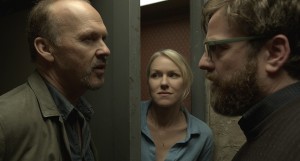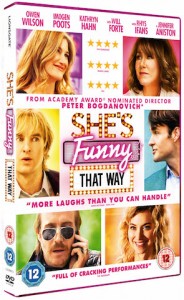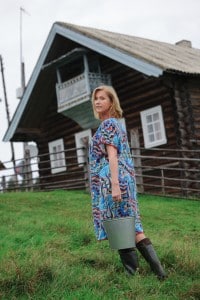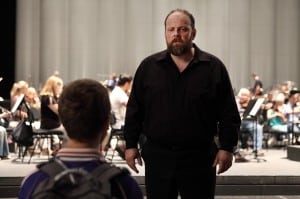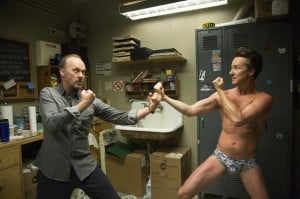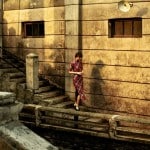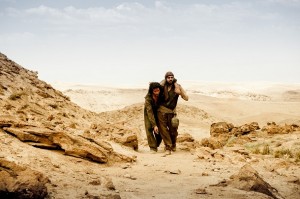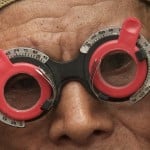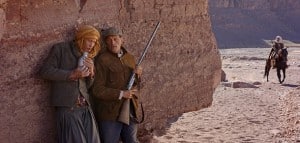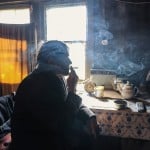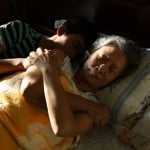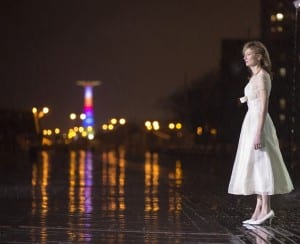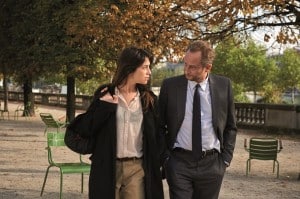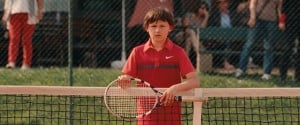At this year’s LONDON FILM FESTIVAL Alice Rohrwacher presents her Cannes-award-winning drama THE WONDERS. Sister Alba Rohrwacher, joins her as star of both THE WONDERS and HUNGRY HEARTS, that won her Best Actress at Venice Film Festival. Other Venice winners, Directors Saverio Costanzo (HUNGRY HEARTS) and Ivano De Matteo (THE DINNER) will also grace the Red Carpet for the festival.
LEOPARDI (Il Giovane Favoloso) by Mario Martone 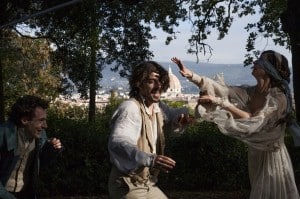
Mario Martone (Amore Molesto) takes on the crippled 18th Century literarary genius, Giacome Leopardi, in this ambitious but rather worthy biopic. Sumptuously set in the verdant countryside of Tuscany and The Marche it stars Elio Germano (A Magnificent Haunting) as the lonely poet and child prodigy who struggles to break into fashionable circles despite a disciplinarian father and poor health. Leopardi did not score heavily on the romantic front, unlike Lord Byron, who, despite his club foot, enjoyed a great deal of erotic attention from the opposite sex; Ippolita di Majo’s screenplay dabbles with some of his female fantasies in the shape of a young illiterate girl who dies early on and a ravishing Florentine countess, played superbly by Anna Mouglalis who lights up this otherwise rather dry biopic with her charm and elegance. Sadly she falls for his more good-looking and glamorous friend Antonio Ranieri (Michele Rondino). The only aborted action he has between the sheets is with a Naples prostitute, but this episode ends cruelly in humiliation. As the drama progresses to Rome and Naples, it opens out visually with some magnificent landscapes of southern Italy and further opportunities to discover Leopardi’s moving poetry and learn about his ideas as a philosopher. This is an ambitious and watchable film and Elio Germano gives a strong and convincing performance as a tortured artist wracked with pain and mental anguish who was wiser of the human condition than his elders gave him credit for: “People are ridiculous only when they try or seem to be that which they are not”.
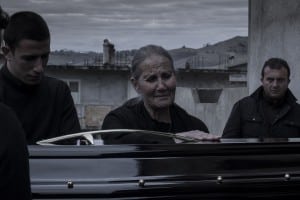
BLACK SOULS (Anime Nere) by Francesco Munzi
Dubbed as the new Gomorrah in some circles, Francesco Munzi’s mafia family drama purrs with tension, taking the brutal Mafioso world to the rustic villages of the Calabrian foothills at the southern tip of Italy. This is the heartland of the ‘ndrangheta, the biggest and furthest-reaching mafia group in Italy, far stronger than the Comorrah and the Sicilian mafia, but more secretive and rarely infiltrated by outsiders. It’s because the group is made up of family units that the ‘ndrangheta are so tight, but it also means that entrance to the group for descendants is tacitly obligatory. If you don’t want ‘in’, you’re asking for trouble. That’s the case with Luciano (Fabrizio Ferracane), a farmer whose brothers are long-standing members of the Carbone clan; he instead tends to his farmland of goats on the slopes of the Apennine Mountains. His son Leo (Giuseppe Fumo), however, is eager to join a group where he’ll gain respect, and in an age where Italian youngsters are frequently downtrodden by unemployment, this is something he is eager to commit to. His uncle Luigi (Marco Leonardi), a drug dealer who travels Europe, takes Leo under his wing, but after an altercation between Leo and a rival clan, events spiral to take the apparently peaceful town to gang war.
This is a slower, more composed film than Gomorrah, and doesn’t have that film’s electric socio-political edge. Instead, it works as a family drama that simmers with personal tragedy and works up to a powerful, gripping finale. Sumptuously filmed in the village of Africo, often said to be the home of the ‘ndrangheta, and with the peninsula’s craggy dialect, it convinces as a place where the state, the police, and perhaps conventional morality have trouble accessing. Among a cast of non-actors and professionals, Fumo, plucked from hundreds of local kids, is remarkable in his debut role as Leo, saying little but carrying a primordial terror with every retort at his disillusioned father. Munzi’s script, co-written with Fabrizio Ruggirello, starts the film in Amsterdam and Milan, and perhaps could have done with setting the film more tightly in the insular ‘ndrangheta communities. Here it feels like there’s no escape, where every aspect of life is dominated by the mafia. The organisation helps local politicians gain election, bars and shops have to obtain ‘protection’ by one of the clans, and respect to members is non-negotiable. But that blinkered view of the world is also this family’s downfall, as the cracks in the foundations make the whole house fall down.
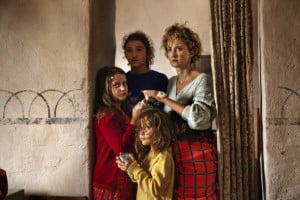
THE WONDERS (Le Meraviglie) by Alice Rohrwacher – GRAND PRIX, CANNES 2014
The follow up to her acclaimed debut Corpo Celeste, The Wonders, 33-year-old Alice Rohrwacher, won the Grand Prix at Cannes this year. Set in her native Italy, the film explores the impact of a stranger upon a dysfunctionally hermetic family living in the Umbrian countryside where they cultivate delicious wild honey from their native bees. As with Corpo Celeste, the film focuses on a young girl’s coming of age. This delicate and gently tragic coming of age tale is told with tenderness and respect to the traditions of a country where communities still live from the land, threatened by the ever-increasing presence of “Heath and Safety”. A magical narrative with some touching performances from Alba Rohrwacher and a star turn from Monica Bellucci.
 HUNGRY HEARTS by Saverio Costanzo
HUNGRY HEARTS by Saverio Costanzo
BEST ACTRESS AND BEST ACTOR, VENICE 2014
Severio Costanzo’s Venice ‘Best Actor and Actress” winner, Jude (Adam Driver) and Mina (Alba Rohrwacher) proved divisive amongst critics’ circles. It’s a weird and quirky drama that’s not quite a thriller but feels it ought to be. It centres on a couple who remain cloistered in their apartment after the birth of the baby boy. Mina, who has been anorexic during the pregnancy, is also germo-phobic and does not want to leave, or take the baby outside. Well cast in the role, Rohrwacher, makes for a subtely unhinged Mina while American, Adam Driver’s, feels somewhat out of place as Jude. With the help of a social worker, he more or less kidnaps his son, who goes to live with his mother (Maxwell) in the countryside outside New York. But Mina does not give up, she tries to regain custody of her son, and after Jude hits her, she manages to regain custody. The desperate grandmother can only think of a very radical solution. Half way through the film, the fish-eye lense is introduced, turning the narrative even more into a real life horror story. Mina is a frail and emaciated creature, just skin and bones, a fanatical gleam in her eyes. Jude is geeky and ambivalent – for much of the film, he tries to mediate between Mina and reality. His mother is made of much sterner stuff, and does not fall for Mina’s passive-aggressive schemes. However harsh the denouement appears, it’s clear that somebody had to make a stand – and Jude was much too feeble to be this person. Despite a weak script with gaping potholes, the superb cast handle the action masterfully. Not a film for the faint-hearted, but a convincing story of ordinary madness
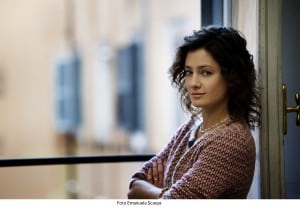 THE DINNER (I Nostri Ragazzi) by Ivano De Matteo,
THE DINNER (I Nostri Ragazzi) by Ivano De Matteo,
Another Venice Film Festival Winner, THE DINNER is very much a family-focused drama. Two brothers, Massimo (Gassman), a doctor and Paolo (Cascio), a glib lawyer, meet regularly with their wives, whilst their teenage children Benedetta and Michele go to parties together. The adults actually despise each other: Massimo is self-congratulatory, looking down on his more down-to-earth brother and trying to bend the law in favour of his clients. No love is lost between the women either: Massimo’s wife Clara (Mezzogiorno), a practical hands-on woman, finds the fashion-conscious Sofia (Bobulova) rather trivial, despite her responsibility for Benedetta, whose mother died very young.
But of the blue, the parents find out that their kids have killed a homeless woman, apparently just for fun. All but Paolo, want to cover up the crime so as not to destroy their future. But when Paolo insists on handing the pair over to the police, Massimo reacts with violence. Ivano de Matteo delivers a moral, character-driven fable, with some unexpected twists. These are, by no means, the people we thought they were to begin with: Massimo starts out as the moral apostle, doing good in his profession, full of love for mankind (apart from his brother and his wife). Paolo is only interested in success, the means do not matter to him. But when it comes to the crunch, he is the only one to ask for justice – the other man wants to cover up for the children. Nowadays, over-protection of kids in the middle classes is the norm; parents buy (or cheat) to get their “mini-me’s” a good place in life (this author being no exception); trying to resolve all problems for them; making them dependent on the older generation; often forgetting to teach responsibility and self-reliance. Sure, the outcome is not often so cruel as in this fictional case, but the root of Benedetta and Michele’s coldness lies in their own upbringing. The cast is brilliant, the camera vividly tracks the protagonists in a concrete jungle, or in their work places. The adults seem always on the run; the teenagers indolent. A very gloomy but perceptive indictment on a social class who, on superficial appearances, seems to have everything.
THE LONDON FILM FESTIVAL RUNS FROM 9-19 OCTOBER 2014

